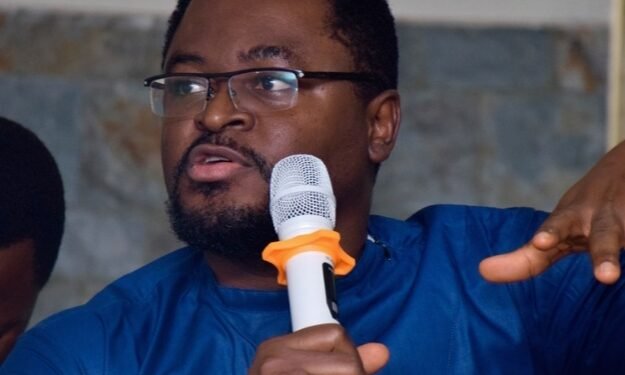We will be tested on all sides. It is in this capricious season that our belief in and commitment to Nigeria will be tested. It is at this time, we will look at ourselves in the mirror and either say, “I am for Nigeria” or “I am for my tribe”.
____________________________________
The convulsive tenor of the campaign season is bringing out the worst in us. Daggers are drawn, tempers are inflamed; relationships are tested, and our differences are hyperboled.
The 2023 presidential election is shaping up to be a tribal contest. Political fandom seems to be built around ethnic allegiance, and not necessarily on leadership stuff. Statesmen have become tribesmen, and nationalists have become tribalists.
We will be tested on all sides. It is in this capricious season that our belief in and commitment to Nigeria will be tested. It is at this time, we will look at ourselves in the mirror and either say, “I am for Nigeria” or “I am for my tribe”.
Politics reveals the concealed hue of a familiar face; it awakens forgotten prejudices. In politics, our weaknesses are emboldened, and native fissures foregrounded.
As a matter of fact, our politics is ethnically charged because good governance is not at the roots of the contest. Citizens and politicians see political power as conquest to assert sectional relevance and pursuits. We must do away with this. If it is really about leadership, Nigeria’s president can come from any blend of society, any section of the country or even from Mars.
Those deploying atavistic prejudices for political advantage must understand that after elections, there is governance — of the whole country — and not of a section. So, it is only prudent they keep out tribal prejudices and discuss real issues, as well as assess the candidates on their antecedents and records on leadership.
When political campaigns are driven by prejudices and ethnic contaminants, the corollaries remain long after electioneering. The next administration may find itself on tenterhooks as regards establishing trust with other sections of the country which became victims of ethnic obloquy.
If the purpose of seeking power is for the good of all, then we must begin by keeping the campaigns clean. What is the good of power when the next government will spend the next four years struggling to mend fences and manage diversity without success? We will be reinventing a parlous wheel.
If we sow hate during the campaigns, we will reap hate afterwards. The travails of the past seven years should teach us not to make campaigns about ethnic and religious prejudices. Keep the ethnic groups of the presidential candidates out of the petri dish; discuss and criticise the candidates, not where they come from or where they worship.
We dissipate so much energy cursing one another out, but leave little to interrogate the candidates on policy paradigms. We must make this election about jutting issues that govern our lives as citizens – economy, security, education, and health.
It is prejudice to describe any ethnic group by the actions of an individual or a few. It is also prejudice to refer to any group by convoluted labels or tags. Clearly, we are all guilty. We must sanitise our conversations and drop these ethnic epithets.
To reinforce ethnic biases, some deploy self-archived ahistorical accounts. Our past as a country should not be a springboard for hate exchanges, but a source of learning to forge a better country. We hold on to “history”, whether manufactured or inverted, to accent prejudices and biases. Evolving means we are better than yesterday.
Finally, to unite Nigeria, there is a place for leadership and a place for followership. Uniting Nigeria will involve Nigerians from all strata. The place of leadership in achieving unity is the place of personal example. Leadership by deed not just by words. A united Nigeria is possible.
ABOUT THE AUTHOR











